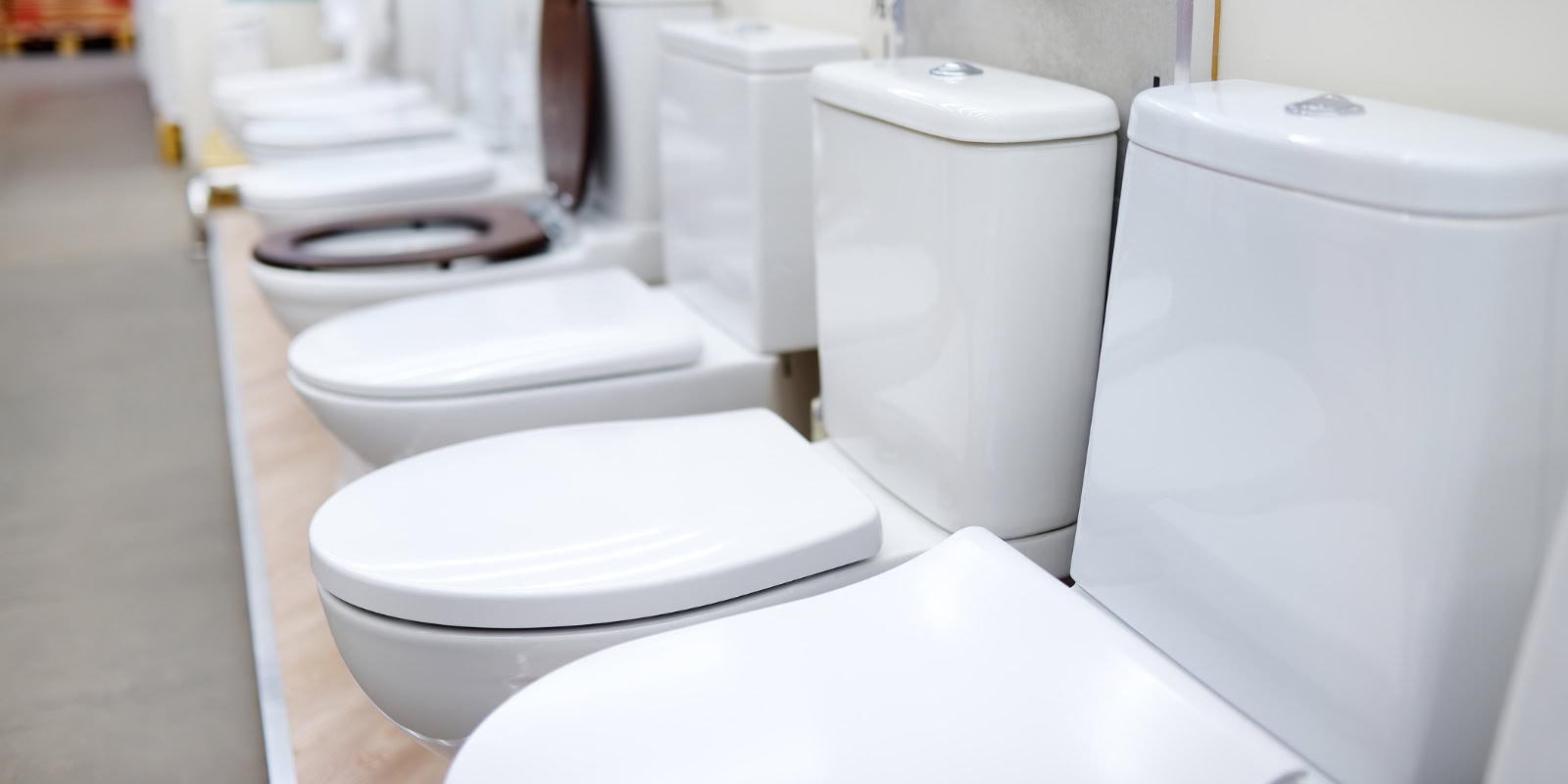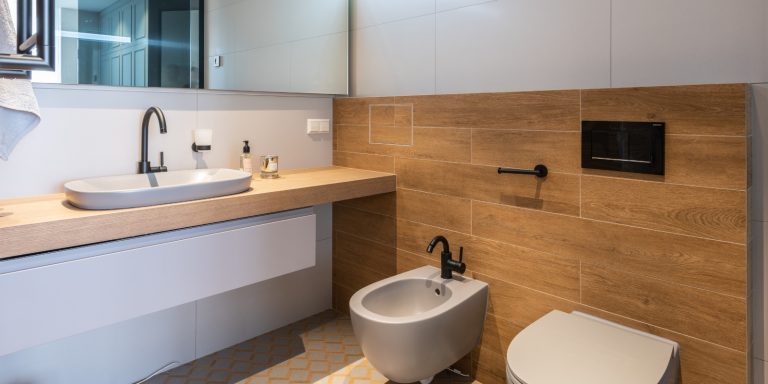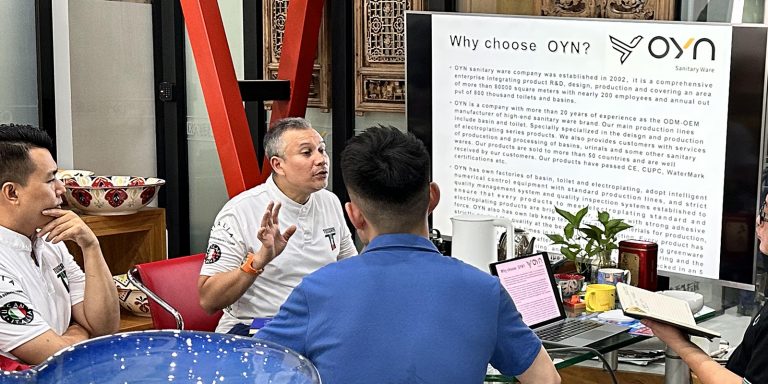As a distributor, wholesaler, or retailer in the sanitary ware industry, stepping into the world of imports can unlock a treasure trove of high-quality, cost-effective products. From sleek toilets to elegant gold plating bathroom sinks, China’s vast manufacturing landscape offers an array of products often unmatched in quality and price by local markets. But diving into importing can be daunting without the right know-how.
This guide simplifies the journey, providing you with clear, actionable tips on selecting top-notch China sanitary wares, finding reliable suppliers, and navigating common import challenges. We’ll steer you through the complexities of international trade, ensuring you confidently avoid any pitfalls in quality control. Get ready to enhance your inventory with the best the global market has to offer.
What Types Of Sanitary Ware Are Produced From China
In the ceramic sanitary ware market, a vast range of products is available, meeting the varied preferences and requirements of customers. These include:
● One-Piece Toilets: Renowned for their sleek design and ease of cleaning, one-piece toilets are a singular structure that combines the tank and bowl, reducing the crevices where bacteria can multiply.
● Two-Piece Toilets: Offering practicality and ease of handling, two-piece toilets feature a separate bowl and tank, this design can be advantageous when replacing parts or servicing, as either the bowl or tank can be handled separately.
● Wall-Hung Toilets: These toilets provide a modern look and make floor cleaning easier. They require a wall carrier to house the tank but offer unparalleled space efficiency and style.
● Bathroom Basins: From pedestal sinks that evoke a classic look to contemporary wall-mounted models that save space, Chinese manufacturers offer sinks in a variety of styles, sizes, and finishes.
● Pedestal Basins: Ideal for smaller bathrooms or powder rooms, pedestal sinks stand on a single column and come in various designs ranging from traditional to modern.
● Wall-Hung Basins: These sinks are fixed directly to the wall, freeing up floor space and offering a minimalist, sleek appearance.
● Ceramic Bidets: An increasingly popular option globally, ceramic bidets from China are available in various styles to complement toilets and allow for personal hygiene.
● Custom Sanitary Ware: Recognizing the unique needs of different markets, Chinese manufacturers offer custom bathroom sanitary ware solutions. Clients can specify designs, sizes, and features to meet specific market demands or project specifications.
What Are The Advantages Of Importing Sanitary Ware From China
Importing sanitary ware from China offers several compelling advantages for businesses around the globe. Here’s a look at some of the key benefits:
- Cost-Effectiveness
Chinese manufacturers excel in offering superior sanitary ware at favorable prices. This is due to their capacity for large-scale production, sophisticated manufacturing practices, and efficient supply chain management, all contributing to a reduction in per-unit import costs.
- High-Quality Products
Despite the lower cost, there is no compromise on quality. Chinese sanitary ware often meets or exceeds international quality standards. Many manufacturers have ISO certifications and adhere to rigorous quality control processes to ensure their products are durable, functional, and aesthetically pleasing.
- Innovative Designs
China is at the forefront of sanitary ware design innovation. Chinese manufacturers frequently invest in research and development to create products that incorporate the latest trends in bathroom design, from sleek, space-saving models to smart toilets equipped with the latest technology for comfort and hygiene.
- Wide Range of Products
With a vast manufacturing base, China offers an extensive variety of sanitary ware products. This diversity means that buyers can source virtually every type of bathroom sanitary ware from China, from basic models for budget projects to luxurious designs for high-end markets.
- Customization Capabilities
Manufacturers in China often provide the option to customize products according to the specific needs and preferences of their clients. This can include adjustments to the size, color, style, or features of the sanitary ware, allowing businesses to cater to local tastes or specific customer demands.
- Strong Industrial Clusters
China has several industrial clusters specializing in sanitary ware manufacturing, which creates a competitive environment that drives quality improvement and innovation. It also means that buyers can often source multiple products from geographically concentrated areas, reducing the complexity and cost of logistics.
In conclusion, importing sanitary ware from China can be a strategic decision that balances cost, quality, and variety, providing businesses with a competitive edge in their respective markets.
How To Find Reliable Sanitary Ware Manufacturers In China
Finding a trustworthy manufacturer is crucial for any business looking to import sanitary ware from China. Here’s a guide to help you locate and partner with the right manufacturing companies.
- Industry Research
Begin with comprehensive research to identify the leading regions for sanitary ware manufacturing in China. Areas like Chaozhou in Guangdong Province, known as the “Ceramic Capital of China” are home to a plethora of manufacturers specializing in sanitary ware.

- B2B Platforms
Utilize established B2B marketplaces like Alibaba, Made-in-China, and Global Sources. These platforms feature extensive listings of Chinese manufacturers, complete with business profiles, product details, and customer reviews, which can be invaluable in assessing reliability.
- Trade Shows And Fairs
Attend industry-specific trade fairs such as the Canton Fair or Shanghai’s Kitchen & Bath China (KBC), which offer the opportunity to meet a wide range of suppliers, view product samples firsthand, and establish direct contact with manufacturers.
- Factory Audits
Once you’ve shortlisted potential manufacturers, conduct factory audits either by visiting in person or hiring third-party inspection services. This step is crucial to verify the factory’s capabilities, quality control processes, and labor standards.
- Certifications Check
Look for manufacturers with relevant certifications like ISO 9001 for quality management systems or product certifications such as CE, which indicates compliance with European standards.
- Sample Orders
Before placing large orders, request samples to assess the quality of the sanitary ware. This will give you a direct understanding of the product’s quality and the manufacturer’s ability to meet your specifications.
- References And Case Studies
Ask for references or case studies from the manufacturer. A reliable supplier should be able to provide testimonials or examples of previous work with international clients.
- Communication And Response Time
Evaluate the manufacturer’s communication efficiency and responsiveness. A reliable manufacturer will communicate clearly, respond promptly, and show a willingness to answer your queries and provide assistance.
- After-Sales Support
Inquire about after-sales service policies. A manufacturer that provides robust after-sales support is likely to be more reliable and concerned about customer satisfaction.
By following these steps, you can significantly increase your chances of finding the best sanitary ware factory in China that are not only reliable but also aligned with your business goals and quality standards.
What Are The Quality Standards For Sanitary Ware In China
Sanitary ware manufacturers in China are required to adhere to extensive domestic and international standards, ensuring their products’ safety, dependability, and quality. Importers must understand these standards to confirm that the products they procure comply with the required specifications and meet customer anticipations.
National Standards
● GB/T 6952-2015: This is the national standard for ceramic sanitary ware in China and specifies the technical requirements, test methods, inspection rules, and the marking, packaging, transportation, and storage for ceramic sanitary ware.
● GB 6566-2010: A standard that outlines the limits for radioactive substances within building materials, including sanitary ceramics, ensuring that products are safe for use and do not pose a health risk.
International Compliance
Many China sanitary ware suppliers also adhere to international quality standards to remain competitive in the global market:
● ISO 9001: An international standard for quality management systems that demonstrates the ability of the manufacturer to consistently provide products that meet customer and regulatory requirements.
● CE Marking: Signifies that products sold within the European Economic Area (EEA) meet EU safety, health, and environmental protection requirements.
● WaterSense: A program sponsored by the U.S. Environmental Protection Agency that promotes water efficiency. Products bearing the WaterSense label must meet EPA’s specifications for water efficiency and performance.
For importers, ensuring that your Chinese supplier adheres to these standards is vital. It not only affects the durability and safety of the sanitary ware but also its marketability across different regions. Always request and verify the relevant certificates and test reports when sourcing sanitary ware from China.
Can I Order Custom Designs In Sanitary Ware From Chinese Manufacturers
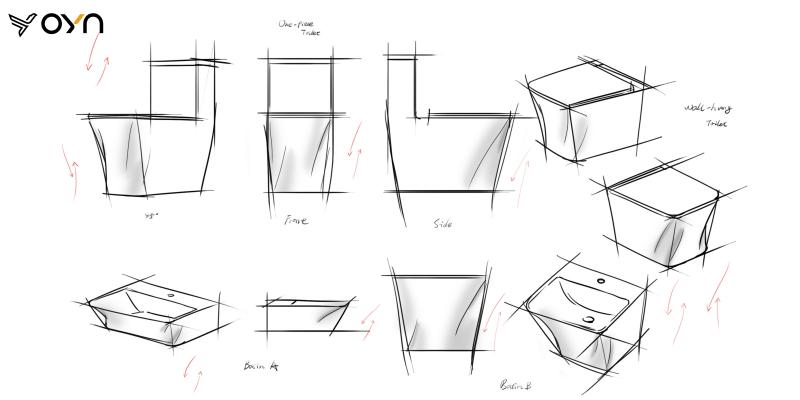
The possibility of ordering custom designs in sanitary ware from Chinese manufacturers is not only feasible but also one of the notable advantages of sourcing from China. Here’s what you need to know about customizing sanitary ware with Chinese manufacturers:
Feasibility And Scope
● Wide Range Of Customization Options: Chinese manufacturers typically offer extensive customization options, which include altering designs, dimensions, colors, and materials, and adding distinctive features or logos.
● Market-Oriented Tailoring: Customization enables the alignment of products with particular market requirements or consumer tastes, distinguishing your brand in a competitive landscape.
Process Of Custom Design Orders
- Design Specification: The first step is to provide the manufacturer with detailed specifications of your desired product. This could be a unique design you’ve created or modifications to existing products.
- Prototype Development: Many manufacturers can produce a prototype or a 3D rendering of the custom design. This stage is crucial for visualizing the final product and making necessary adjustments.
- Mould Creation: For entirely new designs, a mould will need to be created. This is a significant step as it involves additional cost and time.
- Sample Production: Once the mould is ready, the manufacturer will produce a sample product. This sample is critical for assessing the design, functionality, and quality before full-scale production.
- Quality Approval: After examining the sample, you should provide feedback or approval. If adjustments are required, the manufacturer may produce another sample.
Considerations And Recommendations
● Minimum Order Quantity (MOQ): Custom orders usually have higher MOQs due to the additional work and resources involved.
● Cost Implications: Customization can be more costly than standard products. This includes the costs for mould creation, design work, and potentially higher unit prices.
● Time Factor: Custom orders generally take longer to complete than standard orders. This includes the time for design, mould creation, and production.
● Quality Assurance: Ensure that the manufacturer has a robust quality control process to maintain the quality of the customized products.
● Intellectual Property: Protect your designs and intellectual property rights. Have clear agreements with the manufacturer regarding the ownership and confidentiality of your custom designs.
In summary, ordering custom designs from Chinese manufacturers offers a great way to differentiate your product offerings and cater to specific customer needs. However, it requires careful planning and clear communication to ensure that the final products meet your expectations in terms of design, quality, and cost.
How To Ensure The Quality Of Sanitary Ware Products Before Importing
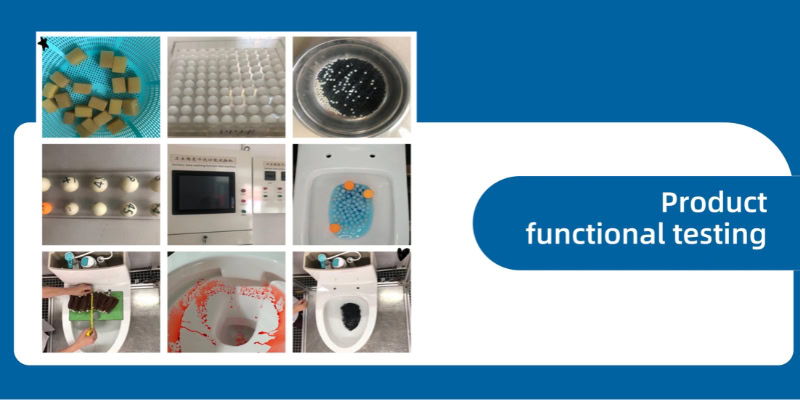
Ensuring the quality of sanitary ware products before importing involves a series of steps that combine clear communication, rigorous inspection, and thorough testing. Here’s a structured approach to guarantee that the products you import meet your standards:
- Set Clear Quality Standards
Start by providing detailed product specifications to your manufacturer. This includes dimensions, materials, finish, performance standards, and any other relevant details. Include technical drawings or 3D models if possible for added clarity.
- Choose Reputable Manufacturers
Choose manufacturers with a good reputation for quality. Look for those with positive reviews, references, or a strong portfolio of international clients. Verify their certifications, such as ISO 9001 for quality management or compliance with specific standards relevant to your market, like CE or WaterSense.
- Request Pre-Production Samples
Before approving full-scale production, ask for pre-production samples. These samples should match your final product specifications. Test these samples thoroughly for quality and compliance with your requirements.
- Conduct Third-Party Quality Inspections
Hire an independent third-party inspection service to assess the products at various production stages. Pre-shipment inspections are crucial. They should be done when a significant portion of the order is completed, checking for quality, functionality, and adherence to specifications.
- Perform Factory Audits
Arrange for regular audits of the manufacturing facilities. This helps to assess the manufacturer’s production capabilities and quality control processes. Focus on their manufacturing practices, workforce expertise, and environmental compliance.
- Regular Communication with the Supplier
Maintain regular communication with the supplier throughout the production process. Request updates and photos to monitor progress. If issues arise, address them immediately with the supplier to find solutions.
- Test for Durability and Functionality
Conduct or request durability and functionality tests. These can include flush efficiency tests for toilets, load tests for sinks, and wear resistance tests for surfaces.
- Review Packaging and Shipping Standards
Inspect the packaging to ensure it’s robust enough to protect the products during transit. Confirm that the labeling and documentation meet your country’s import regulations.
By following these steps, you can effectively manage and ensure the quality of sanitary ware products before they leave the factory, thus reducing the risk of receiving substandard goods.
What Are The Typical Costs Involved In Importing Sanitary Ware From China
Importing sanitary ware from China involves various cost components that can impact the overall investment. Understanding these costs is essential for effective budgeting and financial planning. Here’s a detailed breakdown:
● Product Cost
Unit Price – The base cost per unit of sanitary ware, which varies depending on the type, quality, and specifications of the products. Custom designs may incur higher costs.
● Manufacturing Costs
Mould and Tooling Costs – For custom designs, creating new moulds or tooling can add significant expenses.
Material Costs – Variations in material quality can affect the overall manufacturing cost.
● Minimum Order Quantity (MOQ)
Volume Purchase – Manufacturers often require a minimum order quantity, which can influence the total cost of the order, especially for custom or specialized items.
● Shipping And Freight Costs
Transport Mode – Costs depend on the mode of transport (air, sea, or land). Sea freight is typically more cost-effective for large volumes.
Insurance – Freight insurance to protect against loss or damage during transit.
● Import Duties And Taxes
Customs Duties – Vary depending on the country of import and the type of sanitary ware. It’s crucial to check the local tariff classifications.
Value-Added Tax (VAT) and Sales Tax – Applicable taxes based on the importing country’s regulations.
● Logistics And Handling Fees
Port Handling and Inland Transportation – Costs for handling at the ports and transportation from the port to the final destination.
Warehousing – Storage fees, if applicable, before distribution or sale.
● Quality Control And Inspection Costs
Third-Party Inspections – Hiring independent quality control services for pre-shipment inspections adds to the cost but ensures product quality.
● Compliance And Certification Costs
Testing and Certification – If your market requires specific certifications or testing for sanitary ware (e.g., CE marking, WaterSense certification), these processes incur additional costs.
● Agent Or Broker Fees
Sourcing Agents – Fees for agents who assist in finding and negotiating with suppliers, especially if you’re not dealing directly with manufacturers.
It’s important to note that these costs can vary based on a multitude of factors including the scale of the order, specific requirements, and the current economic context. Thorough research and planning are key to managing these expenses effectively.
What Are The Best Shipping And Logistics Practices For Importing Sanitary Ware
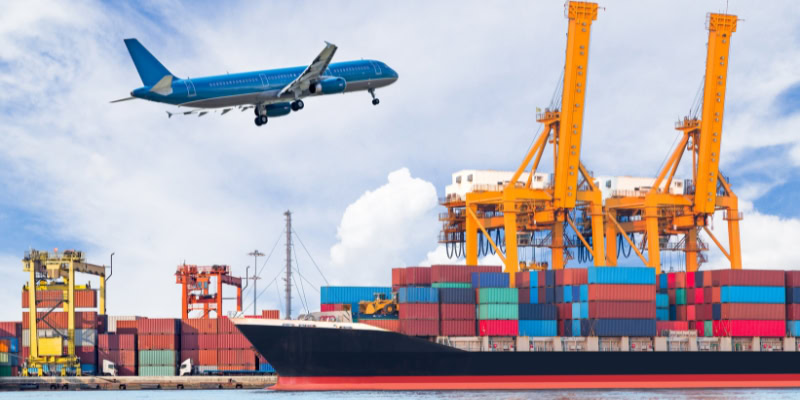
● Shipping Method: Choose sea freight for bulk, heavy shipments, and air freight for urgent, smaller orders.
● Reliable Freight Forwarders: Partner with experienced forwarders in sanitary ware logistics.
● Proper Packaging: Use sturdy packaging and clear labeling to prevent damage.
● Customs Compliance: Familiarize with and adhere to import regulations and product standards of the destination country.
● Container Optimization: Maximize container space and consider LCL shipping for smaller orders.
● Shipment Tracking: Utilize real-time tracking for monitoring shipment progress.
● Insurance: Secure comprehensive freight insurance for risk management.
Discovering OYN Difference In Sanitary Ware Manufacturing
OYN Sanitary Ware’s dedication to excellence in sanitary ware manufacturing is evident in every facet of its operation, from the meticulous production processes to its unwavering customer support. With a robust catalog of over 600 products crafted to meet the highest standards, OYN stands as a paragon of quality and reliability in the industry. Their commitment is further exemplified by a comprehensive 60-month warranty, ensuring peace of mind and customer satisfaction. By incorporating advanced data monitoring and maintaining a steadfast focus on stable and efficient delivery, OYN ensures that each client’s needs are met with precision and care.
For those who seek unparalleled quality and service in sanitary ware, OYN invites you to experience the difference firsthand. Contact us to discover how our products can elevate your offerings and to discuss your specific needs with our expert team.

